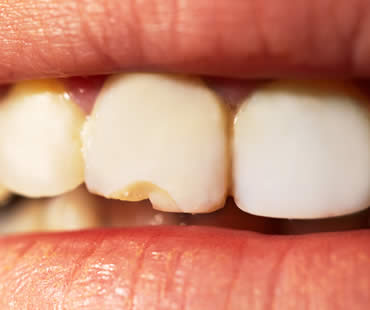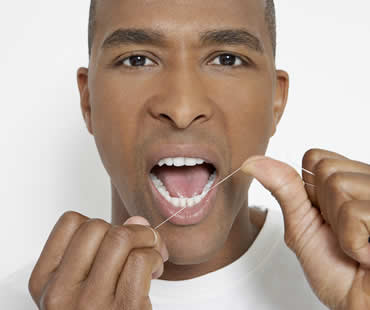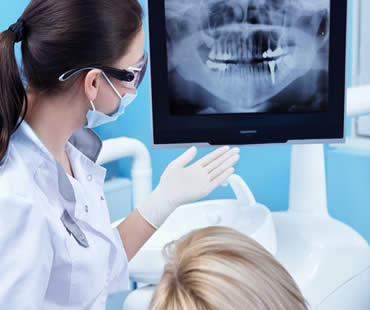
by Dr. Adkins | Feb 3, 2023 | Blog, Dental Topics 1, General Dentistry
Why wait until you have a toothache, bleeding gums, bad breath, or other problems to decide it’s time to start focusing on your oral health? Your mouth and your whole body can benefit from maintaining good oral health. Here is some simple advice that will help you along the path to a healthy smile.
Brushing and flossing
Tooth decay and gum disease are both preventable with proper brushing and flossing. Brush with a soft-bristled toothbrush and fluoride toothpaste, using a circular motion. It’s best to brush after every meal, but twice a day should be the minimum. Gently floss your teeth daily to remove food particles and bacteria between your teeth.
Eating right
Focusing on eating foods from each food group will aid your oral health in addition to your overall health. Not getting essential nutrients in your diet increases your risk of gum disease, and also makes it more difficult for your body to resist infection. Eat low fat dairy items, lean proteins, vegetables, fruits, and whole grains. Look for foods low in sugar, which can lead to tooth decay. Avoid snacking too much during the day when you aren’t going to brush your teeth afterwards, and drink plenty of water throughout the day.
Seeing your dentist
Visit your dentist at least twice a year for checkups. During these appointments, your dentist will look for problems and professionally clean your teeth. Delays in treatment of some conditions can cause them to worsen to the point that treatment may be more painful, difficult, or costly. Your dentist will help you keep your teeth and gums healthy so that you can keep smiling as long as possible.
We treat patients from McDonough and the surrounding area

by Dr. Adkins | Jan 13, 2023 | Blog, Dental Topics 2, General Dentistry
When you have a tooth or multiple teeth with extensive damage, your dentist may recommend a crown or bridge to restore your smile. Most of the time these restorations provide complete and successful results, but occasionally problems arise.
Tooth decay:
Good hygiene is imperative after a crown or bridge because plaque can build up in the area where the tooth and crown meet. Your crown can’t decay, but your tooth still can. Follow your dentist’s instructions for proper brushing, flossing, and fluoride use.
Gum disease:
Plaque buildup around a crown can cause gum disease called gingivitis, and if untreated advance to periodontitis.
Chipping or breaking:
Crowns and bridges are susceptible to damage like fracturing or chipping. Many crowns are made of porcelain, which can chip or completely fail. Heavy wear or stress such as teeth grinding can cause this type of damage, as well as an accident like hitting your restoration. Small chips may be repaired with composite filling, but larger damage can mean total replacement.
Incorrect color:
When having your crown or bridge made, you can choose from a selection of colors. However, the whitest shade is not advised because it likely won’t match the rest of your smile or it can look fake. Make sure you consider the color carefully or else you’ll be faced with redoing the restoration if you dislike it.
Falling out:
Several problems can cause your crown to fall out. The core may fail so that the interior portion of your crown is unable to provide a strong base for the restoration. Less likely, the cement can fail so that the crown simply needs stronger adhesion. Or, the post crown can dislodge so that you’ll see a large post sticking out of your crown. If your crown falls out, be sure to save it for your dentist in case it can be reinserted.
In most circumstances, these problems with your crown or bridge do not occur and you can enjoy a long lifespan with your restoration. If you do notice any of these issues, schedule an appointment with your dentist to ensure optimum oral health.
Our dental office is located in McDonough

by Dr. Adkins | Dec 23, 2022 | Blog, Dental Topics 1, General Dentistry
Cleaning between your teeth and along your gums with dental floss is just as important as using your toothbrush. Although many people complain about flossing or completely avoid doing it, there should be no excuse for neglecting this part of your dental hygiene routine.
Flossing your teeth allows you to get rid of food particles and plaque that is caught between your teeth. It is able to reach areas that your toothbrush can’t. Therefore, flossing plays a key role in preventing tooth decay, gum disease, and bad breath.
You should floss your teeth at least once every day, using a gentle touch so you don’t damage your gums. You can use waxed or unwaxed dental floss, depending upon your preference and which one works best for you. Interdental cleaning aids like picks and sticks may also be carefully used, as well as floss holders. These tools are especially helpful for those with arthritis and vision problems.
Another item that may help remove trapped food debris is a water spray tool called an oral irrigator, although it shouldn’t replace flossing. The same is true for mouthwash, which may be used to help rinse away germs and temporarily freshen breath. You can add these items to your hygiene routine, but giving up flossing should not be an option. Using dental floss is the very best way to attack food particles and plaque so that you have the greatest chance for a healthy mouth.
Dr. Adkins is a family and cosmetic dentist in McDonough

by Dr. Adkins | Dec 2, 2022 | Blog, Dental Topics 1, General Dentistry
Whether you call it pop, soda, soft drink, or something else, these terms all refer to a sugary, carbonated drink popular all over the country. It is estimated that Americans consume over 13 billion gallons of soft drinks each year. These beverages can cause serious health problems, including negative effects on your oral health.
Soft drinks are one of the most significant reasons for tooth decay, and it impacts all age groups. From babies drinking it out of bottles to teenagers drinking it all day long to older adults sipping it in retirement homes, it is deteriorating tooth enamel and eroding gums of everyone who consumes it.
Why are soft drinks harmful?
The high sugar content in the drinks is the root cause of trouble, and the high acid content adds to the threat. The sugar combines with bacteria in your mouth to create an acid, which adds to the acid from the drink itself. Then this mixture attacks your teeth. Each time you take a drink of the carbonated beverage, an acid attack begins in your mouth. During this time, your tooth enamel is weakened and cavities are just waiting to form. You may think that the risk goes away by drinking sugar-free soft drinks. Although these are less harmful, they are still acidic and can lead to decay.
How can I avoid harming my teeth?
The ideal way to rule out risks from soft drinks is to cut them out of your diet completely. If you think you just can’t live without them, here are some suggestions:
- Drink more water.
- Set a good example. Drink alternatives yourself and encourage your kids to do the same.
- Sip with straws. This helps keep the sugar from direct contact with your teeth.
- Rinse with water. After drinking a soda, rinse your mouth with water to reduce the amount of sugar and acid hanging onto your teeth and gums.
- Use fluoride toothpaste and mouth rinse. Using fluoride in your daily dental routine helps to reduce decay and strengthen enamel. Also ask your dentist about the possible need for professional fluoride treatments.
General dentist in McDonough – Schedule your appointment today.

by Dr. Adkins | Nov 25, 2022 | Blog, Dental Topics 2, General Dentistry
Your good health depends on taking excellent care of your teeth. Not only does proper dental care protect your oral health, but it also has a major impact on your overall health. Routine brushing and flossing are just the start. Establishing a relationship with a good general dentist is a vital part of taking care of both your dental health and your general health.
The focus of general dentistry is to stop minor dental problems before they become large health issues. While many dentists now offer cosmetic and restorative treatments, the main responsibility of a general dentist is preventative. Treating cavities, performing root canal treatment, and performing regular cleanings and examinations are some of the important things services by a general dentist.
Even if you take vigilant care of your teeth, only a qualified dentist or hygienist can remove the plaque and tartar that forms around and below your gum line. Regular checkups allow your general dentist to detect problems that could potentially lead to more serious issues. Caught in the early stages, potential trouble like gingivitis or periodontitis can be successfully treated before they become bigger concerns. General dentistry procedures like scaling, root planning, and root canal treatment can be used to save infected teeth.
Prevention is the key to a healthy smile. Taking proper care of your teeth at home and keeping a regular schedule of cleaning and exam appointments with your general dentist will go a long way towards saving your smile for years to come.
Our dental office is located in McDonough

by Dr. Adkins | Oct 7, 2022 | Blog, Dental Topics 2, General Dentistry
What is a dental crown?
- A dental crown encases a damaged tooth completely within a custom-fit cap, or crown, fitting perfectly over the affected tooth. A dental crown is designed specifically for you and your tooth’s particular design, fit and function. It is a restorative therapy that can restore function to a tooth that may have had excessive decay, has been cracked or has recently undergone root canal treatment.
How do dental crowns work?
- A dental crown covers a damaged tooth entirely and can be used to improve not only the tooth’s appearance, but also its shape or alignment.
What is a dental bridge?
- A dental bridge makes a literal bridge between two anchor teeth, filling a gap left by a missing tooth that has either fallen out naturally or is the result of acute decay or facial trauma. Dental crowns cover the bordering anchor teeth, allowing the bridge to fit securely and to function as your natural tooth.
What materials are used for dental crowns?
- Dental crowns can be porcelain (ceramic), porcelain-fused-to-metal, or gold or other metal alloy. Porcelain or ceramic crowns can be designed to closely match the color and translucency of your natural teeth. Metal alloys are usually stronger, and are a better choice for back teeth.
Is a dental cap a crown?
- Yes! A dental cap is another name for a dental crown.
Am I a candidate for a dental bridge?
- If you are missing a tooth and you have adjacent teeth that are stable, dental bridges are for you. Even if you are missing a front tooth or a tooth that has only one border, there are types of dental bridges that could meet your needs.
Are there alternatives to a dental bridge?
- Dental implants are rising in popularity as technology has improved. A dental implant can restore a single tooth or can restore several, and are the standard of care for the replacement of a missing tooth today. Because a dental implant continues to stimulate the jawbone, it doesn’t lead to bone loss over time.
If you need a dentist in McDonough contact us today








 (470) 665-5292
(470) 665-5292  E-Mail Us
E-Mail Us 
